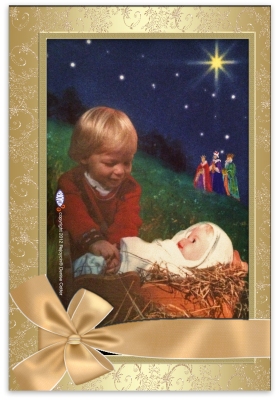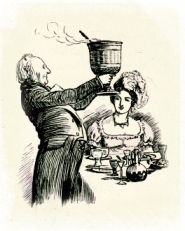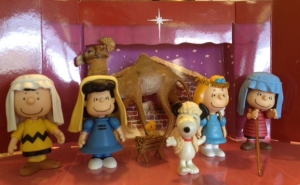
 “So they hurried off and found Mary and Joseph, and the baby, who was lying in the manger. When they had seen him, they spread the word concerning what had been told them about this child, and all who heard it were amazed at what the shepherds said to them. But Mary treasured up all these things and pondered them in her heart.”
“So they hurried off and found Mary and Joseph, and the baby, who was lying in the manger. When they had seen him, they spread the word concerning what had been told them about this child, and all who heard it were amazed at what the shepherds said to them. But Mary treasured up all these things and pondered them in her heart.”
Most every mother surely has been there: the awe, the unique relationship that only you have with the miracle body that was formed in you, unique to you.* It is recorded, Mary is visited by shepherds who learned of her son’s birth from none other than the angel of the Lord who happens to visit them one night in Jerusalem while they are tending sheep. Oh, let’s not forget the angel brought along with him a “host” of angel back up to sing in chorus praises to God and blessings to men following the announcement the Messiah is born! Shepherds were common men. They were pretty low in the status pole but God chose shepherds to receive the good news.†
“But the angel said to them, “Do not be afraid. I bring you good news of great joy that will be for all the people. Today in the town of David a Savior has been born to you; he is Christ the Lord. This will be a sign to you: You will find a baby wrapped in cloths and lying in a manger.”
So the shepherds leave the sheep they are tending and go in haste to Bethlehem to see the Christ child. In other words, these ordinary men walked out on their job to go see a baby. (It is an interesting note that the sheep they were tending were most likely those selected to be sacrificed for god’s favor and blessing.)
When they arrive and share their Good News, Mary receives it. Oh course, why would Mary find this strange, she knew more than anyone God had given her a son, the Son. Mary has already done a lot of thinking. At 16-1/2, 17 years of age she has experienced:
- The announcement of her pregnancy through the angel Gabriel
- The story of Zechariah’s vision in the temple delivered from her cousin Elizabeth
- Elizabeth’s prophecy when John the Baptist was born
- And, her fiance‘, Joseph, stood by his bride-to-be knowing the child was not conceived by him because the angel of the Lord appeared to him in a dream
“But Mary treasured up all these things
and pondered them in her heart. Luke 2:19”
I return to this verse simply because it is one of my favorite and there is much insight to be found in it. It is such an incredibly beautiful tender picture of who Mary is and her temperment. To say Mary “treasured up” is to say she stored or kept in her mind for careful consideration the wonders she was experiencing.¹ To ponder meant that she considered carefully and worked through her experiences.² The words chosen to describe Mary’s reaction of her induction into divine motherhood paint a compassionate picture of why God chose Mary to bring into this world the Prince of Peace.



